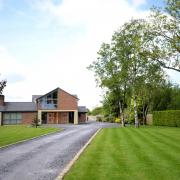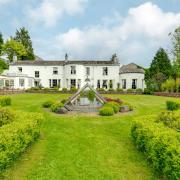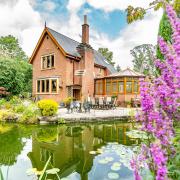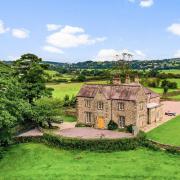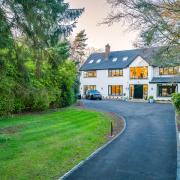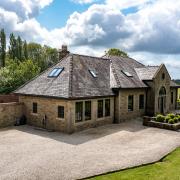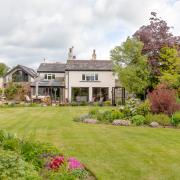Lydia Becker, who spent her adult life fighting for women’s rights, spent her childhood in this lovely house near Accrington

Where: Moorside House, Altham, near Accrington


What: An exceptional detached Grade II listed period country house with an interesting history involving the women’s suffrage movement. It stands in more than 1.5 acres of formal gardens and the substantial internal accommodation contains a granny flat. The property has been improved greatly by the current owners while retaining the immensely characterful accommodation and features typical of the late Regency period.
Inside: The drawing room and the sitting room have impressive large panelled mullioned windows with two-toned marble fireplaces. The lounge also has six hand-painted panels of flowers and these are believed to be by Lydia Becker, who grew up here. There is a bespoke kitchen, snug and study and the staircase leads to a large landing.
The first floor has a master en suite with dressing room and a further four bedrooms, including a self-contained flat within the property with bedroom, lounge, kitchen and bathroom.
Outside: Formal gardens with lawned areas, well stocked flower borders, rose gardens and a ha-ha adjoining the farmland to the front.
Guide Price: £595,000
Contact: Fine & Country Whalley, 01254 828922. www.fineandcountry.com
Lydia’s life
Lydia Becker, who spent her childhood at Moorside House, was a leading figure the early suffragette movement. She was also a proficient amateur scientist with a strong interest in botany, painting and astronomy.
Lydia was born in Chadderton in 1827, the daughter of a leading industrialist whose family had emigrated from Germany and they educated her at home. During her lifetime she founded the Ladies’ Literary Society in Manchester and she was in regular contact with Charles Darwin, encouraging him to publish his theories on various aspects of plant development .
After hearing arguments for the enfranchisement of women she founded the Women’s Suffrage Journal and the committee she formed to press the case was the first of its kind in Britain.
She was often lampooned in the national press hostile to women’s rights but she continued to campaign peacefully for many decades, dying in the spa town of Aix-en-Bains in 1890 without having seen her ambitions realised.




